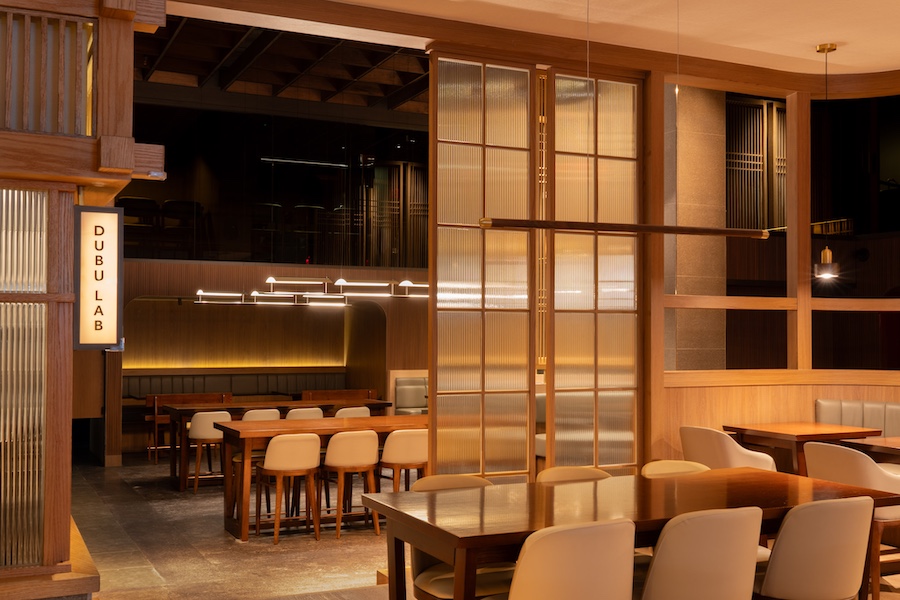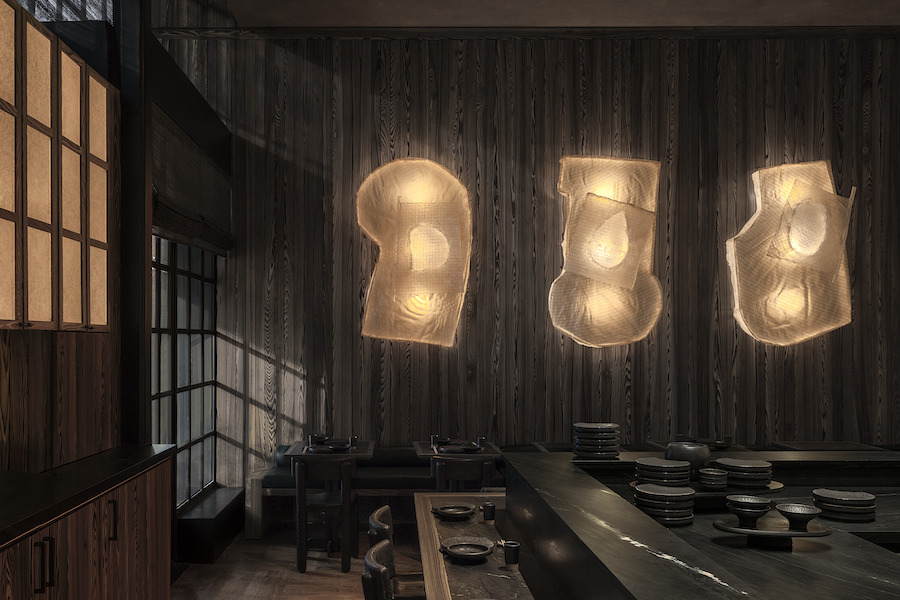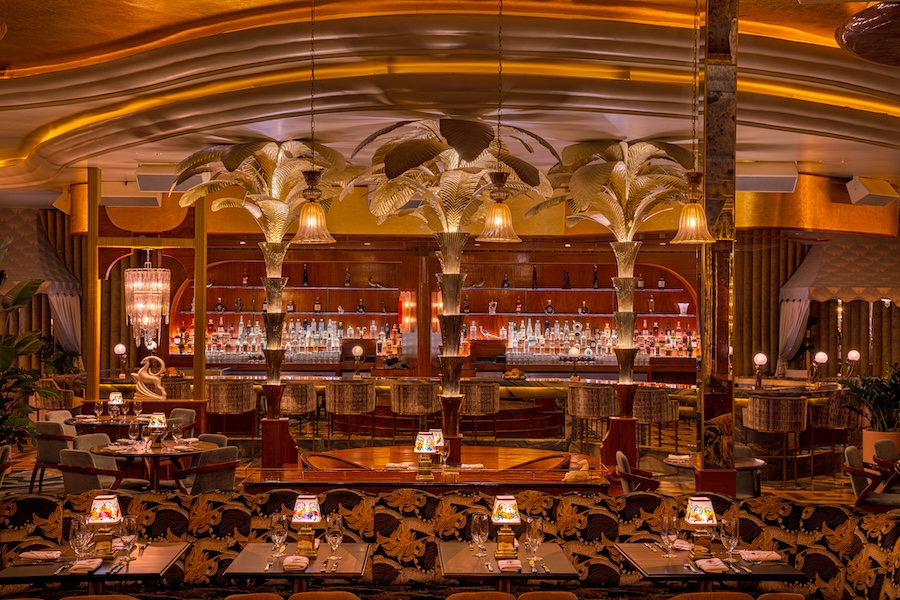Two connected yet distinct dining destinations—DubuHaus and Howoo—have debuted across a 24,000-square-foot space in Midtown Manhattan.
Designed by Urimat Hospitality’s in-house team, each restaurant is an immersive experience that has reimagined Korean tradition for today.
DubuHaus tofu restaurant
DubuHaus, which specializes in handmade tofu, employs a modern minimalist sensibility that draws on the structural beauty of the hanok (a traditional Korean house).
On arrival, guests pass through a wood-clad area offering grab-and-go options to fuel the fast pace nature of the city. Adjacent, a serene waiting area—anchored by a display of octagonal Korean pottery housed behind translucent, hanji-inspired panels—invites quiet reflection.
A curated art corridor bridges guests to the main dining room, presenting a series of works inspired by Korea’s 12 seasonal ingredients. This transitional space serves as an educational and sensorial primer to the dining experience.
At the core of DubuHaus lies the open kitchen, or Dubu Lab, where diners can observe the tofu-making process in its entirety, reinforcing a deep respect for craft.
In the dining room, wooden lattice partitions nod to traditional folding screens in a contemporary context that balances privacy and openness. Overhead, a square grid ceiling motif nods to tofu molds and classic seokkarae rafters found in hanok structures.
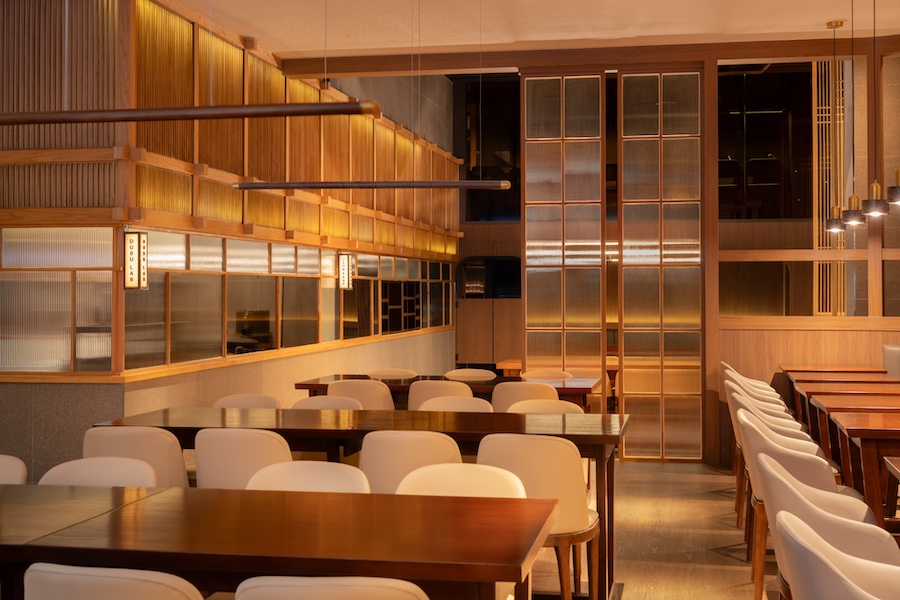
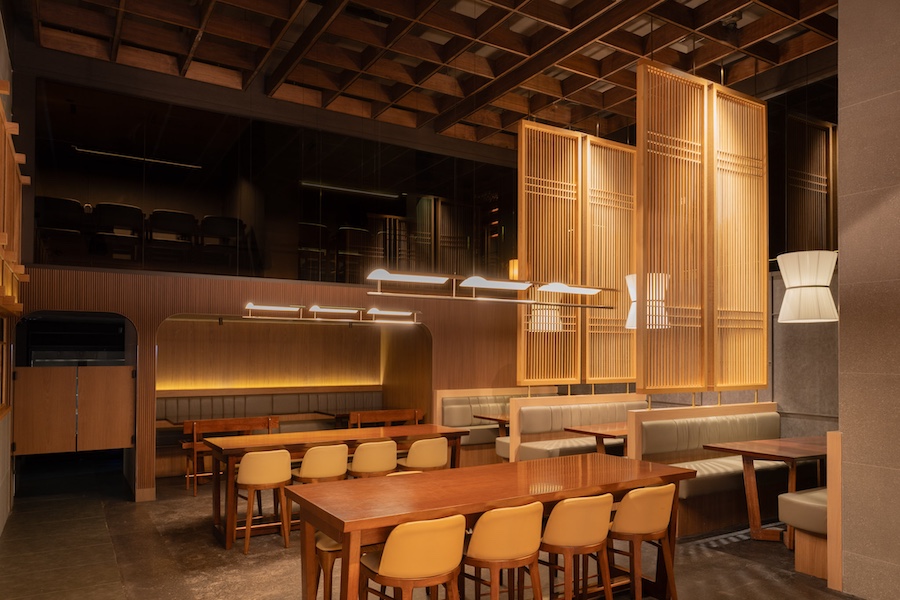
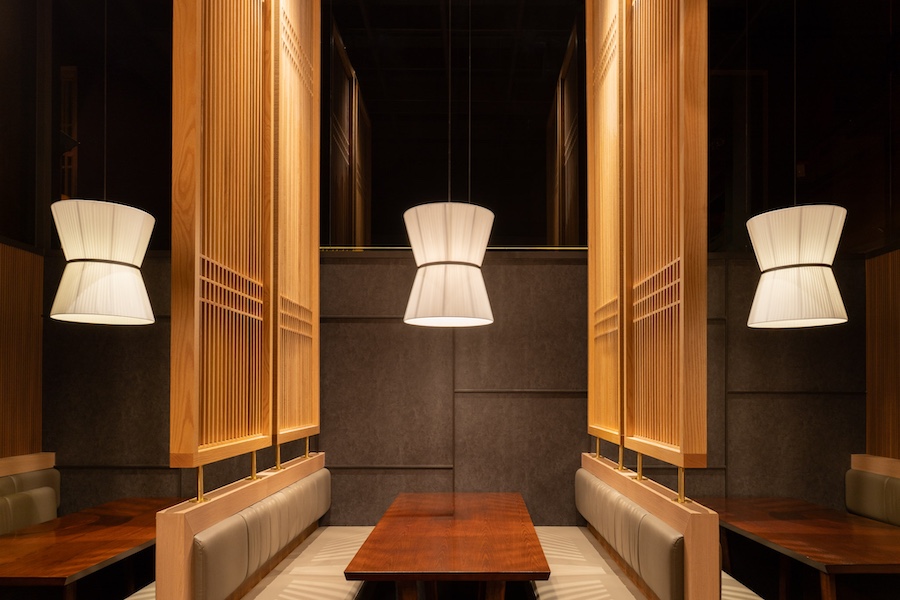
Howoo Korean barbecue
Next door, Howoo delivers an intimate, ambient setting with a distinctly upscale edge.
Dim lighting, dark wood, and tactile stone evoke the warmth of a traditional Korean hearth. The sheen of matte brass and black steel, meanwhile, further enhance the visual appeal of the space.
A feature wall comprising Giwa roof tiles grounds the space in heritage, while the central bar, finished in deep emerald tile and brass, showcases glassware in softly lit alcoves.
Dining tables, crafted from solid wood, are arranged to foster both communal and private moments, and linear lighting and a signature red refrigerator situated at the butcher station provides visual punctuation.
Howoo’s private dining room achieves a sophisticated balance by blending slatted wood doors reminiscent of changhoji screens with gentle curves and ambient illumination.
In the coming months, Urimat Hospitality will introduce a third concept on the basement level of the shared space.
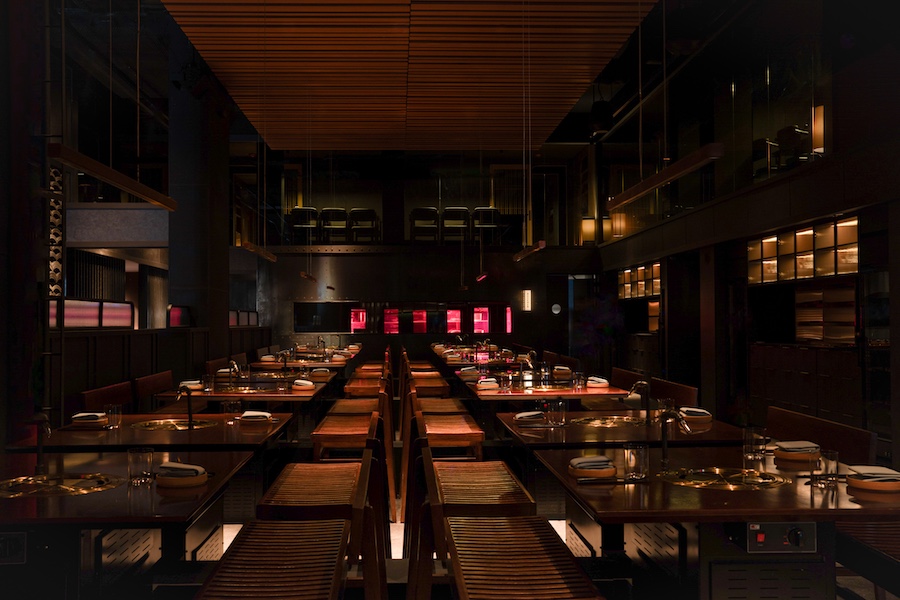
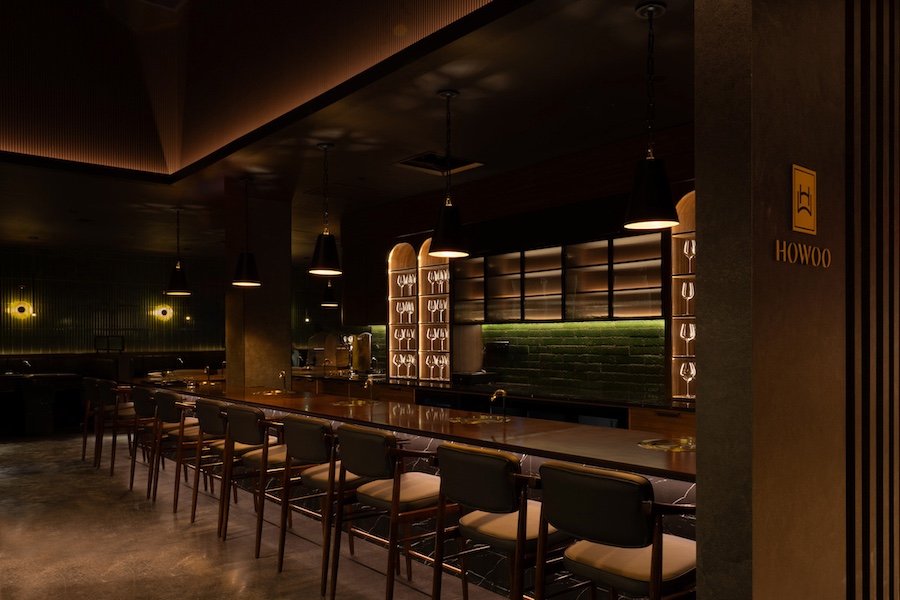
More from HD:
7 Destinations Where Hotel Development Is Booming
Denver’s Populus Hotel Moves the Needle on Sustainability
What I’ve Learned Podcast: Jacu Strauss, Lore Group

